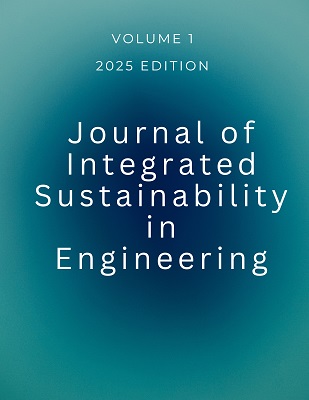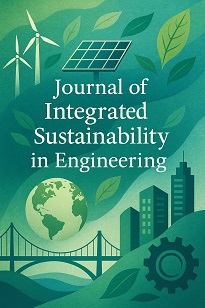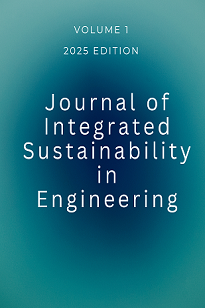Sustainable Enhancement of Geopolymer Concrete Durability Using Recycled Plastic Waste Additives
DOI:
https://doi.org/10.64200/z6kj3326Keywords:
Geopolymer concrete, waste plastic additives, compressive strength, abrasion resistance, permeability, sustainable buildingAbstract
This study investigates the potential of incorporating recycled plastic waste as an additive in geopolymer concrete to enhance its durability and sustainability. Key performance indicators—compressive strength, abrasion resistance, and water permeability—were evaluated for concrete mixes with varying proportions of plastic waste. Results indicate that the inclusion of recycled plastic significantly improves all tested properties compared to the control mix. Enhanced compressive strength, reduced mass loss due to abrasion, and lower permeability levels were consistently observed in the modified samples. These improvements highlight the potential of waste plastic to increase the mechanical and durability performance of geopolymer concrete, while simultaneously offering an environmentally responsible solution for plastic waste management. This research contributes to the advancement of sustainable construction practices by promoting circular material use and reducing reliance on conventional cementitious binders. Further studies are recommended to determine the optimal plastic dosage, evaluate long-term performance, and assess the economic viability of scaling this approach in real-world applications.

Downloads
Published
Issue
Section
License
Copyright (c) 2025 Vishal Sharma, Arundhati Balouria, Manmeet kaur (Author)

This work is licensed under a Creative Commons Attribution 4.0 International License.
This is an Open Access article distributed under the terms of the https://creativecommons.org/licenses/by/4.0/
permitting all use, distribution and reproduction in any medium provided the work is properly cited.
Deprecated: json_decode(): Passing null to parameter #1 ($json) of type string is deprecated in /home/u528617106/domains/jisejournal.com/public_html/plugins/generic/citations/CitationsPlugin.php on line 68


